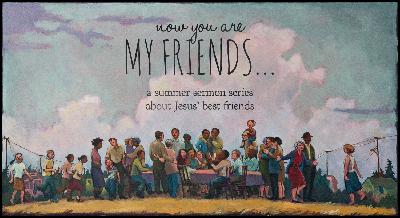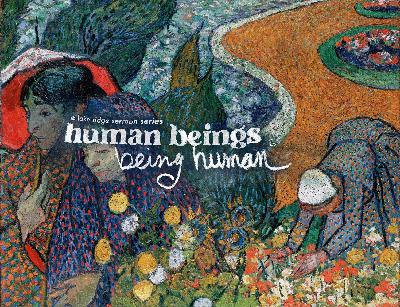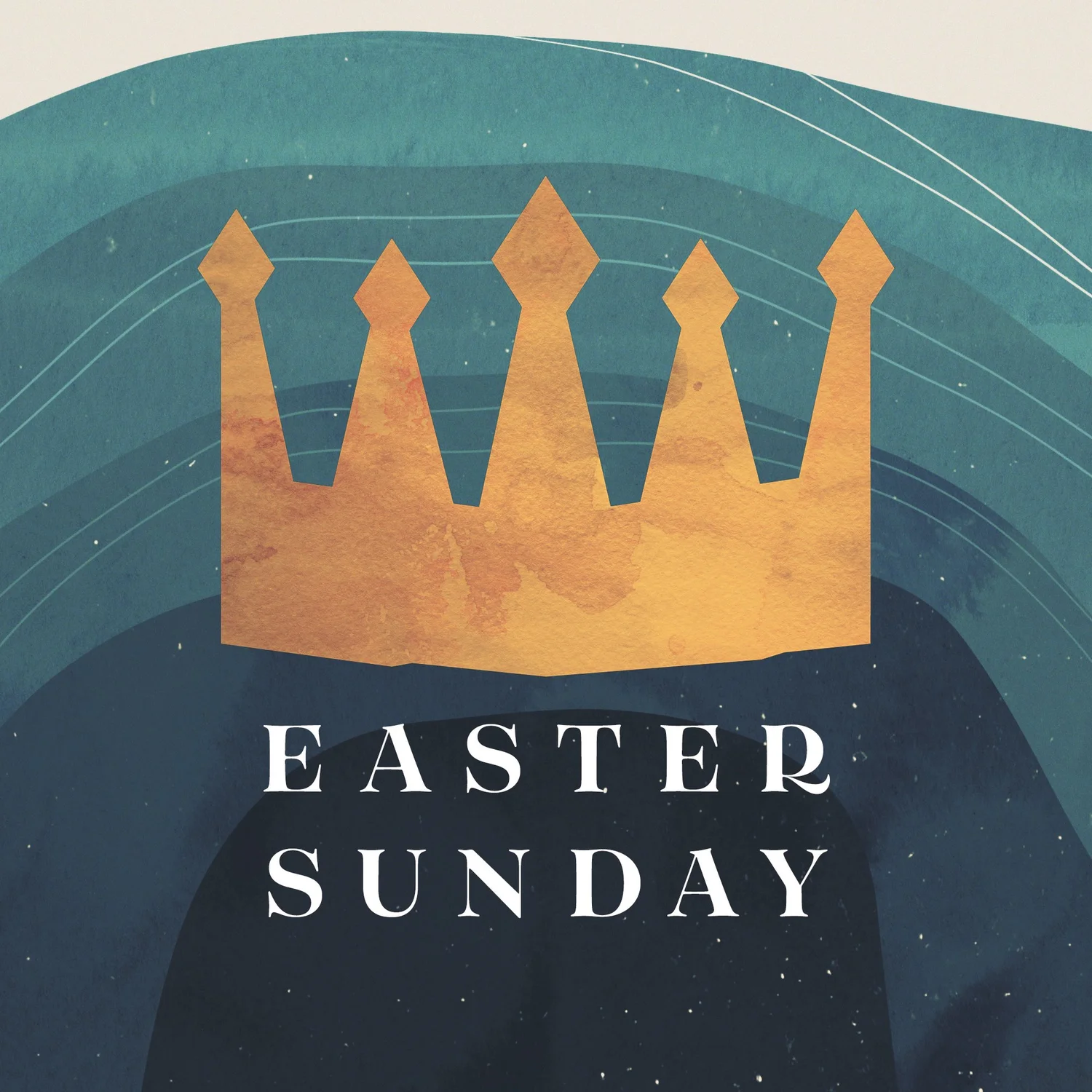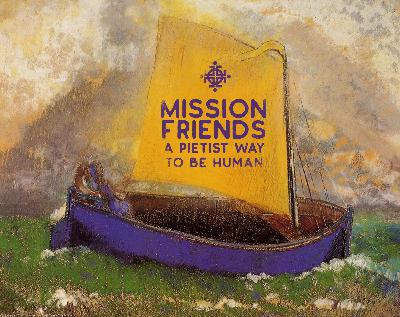Mission Friends: A Pietist Way To Be Human - Living Faith | Pastor Pastor | February 12
Description
[00:00:03 .130] - Speaker 1
Hi there. My name is Preston Pouteaux. Welcome to the Lake Ridge Community Church Podcast. This is where we share some of our messages from Sunday mornings. So we're glad you're here to listen.
[00:00:14 .210] - Speaker 1
We'd love for you to join us in person. We meet on Sunday mornings at 10:30 a.m at Our Lady of Wisdom School here in Chestermere. At our core, we're a community of people, so we gather on on Sundays, but we also do a lot in the week. Together. We are people learning to follow Jesus and love our city.
[00:00:31 .080] - Speaker 1
So to learn more, visit lakeridgecommunity.com. Hope to check in and visit with you soon. Take care. Thanks for listening.
[00:00:44 .340] - Speaker 1
I feel like I'm going through a bit of a renaissance of Jesus. Have you ever had those moments in your life where it's like, Jesus means more than he did before? Something is moving in you? Have you ever had that season of life? They're precious seasons because I've also had the seasons where it's kind of wintry and dry and you wonder if Jesus is anywhere.
[00:01:02 .760] - Speaker 1
Some days I feel like I was explained to somebody, was like, what's it like to be a pastor? And I was like, sometimes it's like standing in a shower that's a hot water and cold water coming out of two direct faucets. So you're grateful that you're standing under hot water, but you're also standing under cold water. Do you kind of get the picture there? There's a lot that comes at us and I think Jesus meets us in it all.
[00:01:27 .010] - Speaker 1
Hey. We are on a journey where we are, I called it Mission Friends. This is a phrase that is ancient in the covenant and piatism who we are. It was a phrase that was used and we are wrestling with what it is to be human, and it's hard to be human sometimes. We're standing under the hot and cold tap of life.
[00:01:46 .030] - Speaker 1
There's something good and cold coming at us at the same time. We're like, how do I hold all these things? So we're taking a look a little bit here at Scripture and we're deeply diving in and we're going to be also exploring some wisdom, I think, from those who have gone before us. I'm a bit of a space nerd. I like spaces in my room growing up.
[00:02:06 .330] - Speaker 1
My kids want to ask me all the time, like, what was your room like growing up? And I had Mum and dad put a big mural on the wall and it was like a spaceship overlooking Earth. And I would lay there pretending that I am like a spaceman or something, right? It was really cool and I loved it a lot. One of the things I really loved too, was space.
[00:02:27 .870] - Speaker 1
Learning about space probes. Going to Mars as a young boy would track with every single one that would happen, and I still do. I have a little, like, notification to know if something's launching because that means I got to wait a few months and it's going to eventually get there and then I can follow up with this and it's really cool. Do you know how violent it is for something to travel, launch off, travel and then land? It is a multimillion dollar, sometimes billion dollar project to get something.
[00:02:55 .330] - Speaker 1
It's the most important mission that some people spend their entire lives working on. And then they blast it off, hope it doesn't explode, hope it survives radiation and everything. Then it has to land in some violent way and stop on the planet. And when it gets there, do you know the first thing almost every single probe does when it lands? It puts out its solar panels and soaks up the sun.
[00:03:22 .580] - Speaker 1
What an interesting thing. One of the first things that this thing, which has a very important mission to do, it has a long list of things it's to accomplish, but what's its first thing it does? It stops and soaks up the sun. It does a whole check of its systems and they run everything through and they do the smallest little things to make sure this thing is ready. The biggest challenge to anything going to Mars is dust, something that would build up over time on its solar panels, because the second those solar panels can't receive the sun anymore, the ticking time bomb is on, that this mission is over.
[00:03:58 .000] - Speaker 1
I think we are people who are called to sit and soak up the sun. Your life is so important, what you are called to do here vital. There's no one else doing what you are doing right now. You are the one occupying your life. You are the one who's important to those around you.
[00:04:14 .390] - Speaker 1
And your mission is vital. And yet sometimes we get on with it too quick before we know that we have to sit and soak in the sun, but to sit and find our place of rest in Jesus before we begin. This is not the way that the people of Israel were worshiping and coming close to living this one and beautiful life. In the Bible, Elijah was a prophet in a time of deep chaos, a time when there had been some good kings and then a series of bad kings, people named a kings named Ahab and Omri, his father. These were two leaders who were regarded terribly in the Bible for their leadership.
[00:05:00 .340] - Speaker 1
They were kings that were on a mission of almost destruction. They disregarded God so deeply it led to assassinations and suicide and war. And at the end, these two were considered, it says in the Bible, they did more evil than all who were before them. There's a brutal vision of leadership that happens in the book of first Kings.
[00:05:28 .800] - Speaker 1
Here they were a father and a son, Ahab and Omri. And one of the things that they did was they set up the nation to be economically stable for the first time, in a long time, they had established some trade routes and they were pretty good. For the first time ever, they were maybe rolling in some of the cash. They could build some things, they were building cities, and these cities were prospering. But these leaders were not going the way of god.
[00:05:57 .160] - Speaker 1
They set up new places of worship. They actually were no longer just worshiping in Jerusalem, but they set up some new temples and some high places. High places were like these shrines, places where you could go and pray no longer with the whole community, but off to the side. You could go and have your own personal experience of god. But these gods weren't enough.
[00:06:19 .120] - Speaker 1
These gods, the god of Abraham, Isaac and Jacob Yahweh, this this god was not, not exciting enough, actually. So they came up with they found two other gods that they could kind of come alongside, the god Ball and the god of Astreth. And I've been to some archeologists, have found some of these shrines and you can see there's like a rock for Ball of us. And they would often have a place where they'd put up a stick for Ashworth. And these are this, these are the types of gods that they would worship.
[00:06:49 .960] - Speaker 1
It's one thing to be worshiping an idol, but these gods, these gods suited their every need. You see, Ball and Ashworth, they were ashworth was a sex goddess. And they would set up this sex goddess beside and they had a whole new way of worship. You see, it's the first time worship is given as a consumable experience. Worship is not coming and sitting beside god and saying god, I love you, shape me, let me follow you, let me live this one and beautiful life with, you know, Ball and Asterisk.
[00:07:22 .500] - Speaker 1
These gods of this time, these were gods of convenient consumption, a consumable experience. Instead of prayer and songs of trust, it was self gratifying products. You were coming to get something out of these gods, not coming to set yourself before them. Eugene Peterson put it like this. He says, when you are terror stricken, you offer a sacrifice.
[00:07:48 .300] - Speaker 1
When you're anxious about your crops, you make a visit to the temple prostitute. When you're joyful, you ingest the wind god feelings called the tune. Fears of panic, of terror, of desire and enthusiasm. You see, you were in charge of your worship experience under ahab and omri. These gods were simply there to appease your anxiety, meet your needs of your self governed life.
[00:08:14 .970] - Speaker 1
You were in charge. They didn't care about you, they didn't want you around, but they were there. And if you brought something to them, they might see you for a second, but they don't like you. It's an ultimate religion for a world in chaos, actually, a world of wealth, a me world. It's perfect for those who want to get something out of their worship experience at their own pace.
[00:08:40 .070] - Speaker 1
On their own terms and their own pleasure. As a result, the nation was in freefall. They finally had everything that they wanted. They had homes, they had gardens, they had all of these things. But they forgot that it wasn't all about him.
[00:08:54 .960] - Speaker 1
And it says in one King 16, it provoked the Lord to anger. I sometimes get angry. I sometimes do. I sometimes do for the wrong reasons. Sometimes I do for the right reasons.
[00:09:07 .070] - Speaker 1
I'm like, no, you smacking your sister around. That is not allowed in the putto home. That's not how we do things, right? God was angry because he's like, you guys treating eac

















